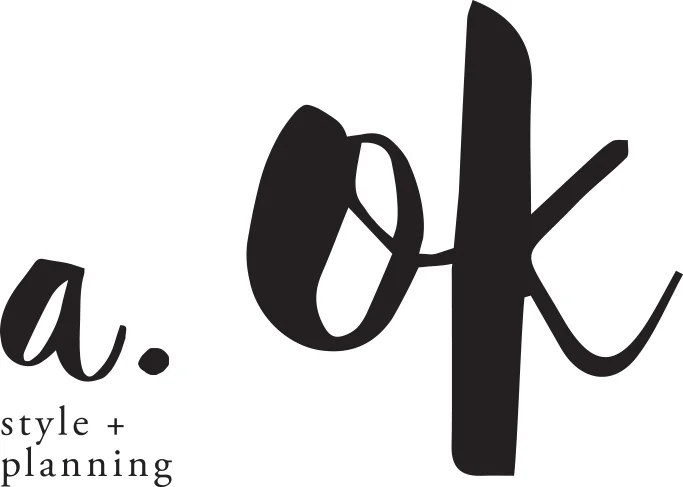how to know you're on the right track
Not to belabor the Oscars, but you know LRW loves awards season, and these ceremonies always get me thinking about an artist's self-worth. Just this weekend, I wrapped up a project that was a game-changer for me. It required a lot of social navigation, demon-battling, and self-awareness. So I can only imagine how these star-studded, legend-making events meddle with celebrity actors' minds.  Craig mentioned an article he'd read about Leonardo DiCaprio being one of the finest actors of our time and why he will never, ever win an Oscar.
It made me think about the institutionalized way in which we determine what is worthwhile and good: awards, reviews, glorified talent shows.
Craig mentioned an article he'd read about Leonardo DiCaprio being one of the finest actors of our time and why he will never, ever win an Oscar.
It made me think about the institutionalized way in which we determine what is worthwhile and good: awards, reviews, glorified talent shows.
Now don't get it twisted, I love feedback. I love engaging with other visions to make something better. I love help. But with constant buzzing in your ear about what is universally good and what is universally terrible, it takes a little discrimination to fall outside of the pack for a minute and figure out your own nuanced taste. If you're going to develop your own vision, you need to know when to collaborate and when to dismiss.
So with my project, I dismissed:
- those who offered criticism without offering their own exposure.
- questions about the effectiveness of my process while still in my process.
- feedback that tore the project down while we were still building it up.
 When the project was ready, my trusted network of artistic comrades gave me lots of feedback. But I found that the most vital feedback I needed during the process was from myself. I needed to decide what was working and what wasn't. It was a tall order for heavy-handed self-sufficiency.
When the project was ready, my trusted network of artistic comrades gave me lots of feedback. But I found that the most vital feedback I needed during the process was from myself. I needed to decide what was working and what wasn't. It was a tall order for heavy-handed self-sufficiency.
But like all the magical moments in creation, when I shut out the unnecessary noise, the answers always came. And I figured out that figuring it out looks sort of like this:
1. Hurtful criticism doesn't shut you down. During the project, I heard some unfortunate things said about my work. Let's be real, 13-year old Courtney snapped to attention for a hot second and came up with some real zingers as comebacks, but then I stopped and asked myself, why does that bother you so much? Is there something you haven't done yet that you need to work on? Are YOU satisfied with what you're doing?
When you are heading in the right direction, instead of lashing out and shutting down, you turn your hurt feelings inward to discriminate what's working from what isn't. You take the (albeit nasty) criticism and use it to your advantage. You uncover a previously untapped resource of insight by questioning why your feelings are hurt. You repurpose those feelings as guideposts to understanding your work. 
The target is always better work and any information you get, ill-intended or otherwise, gets you closer to that target.
2. You feel generous towards others. You gain nothing by tearing others' work down. Your mind is so hellbent on getting better that you find yourself rooting for others, too. You have a personal stake in building others up.
Lindsey Clayton, a friend, colleague, and inspiration of mine is a great example of this. She is an NYC fitness training STAR. She knows how to build people up, how to make others see their own power, and never stops learning, even from those she teaches. 
Generosity does nothing to diminish you, and usually when you are feeling unsatisfied, unhappy, or unfulfilled in your own work is when you look to tear down others. Do you feel generous? Do you feel helpful? Do you root for everyone? Then your work is probably headed in the right direction.
3. Your work, although imperfect, satisfies you. Of course, next year you'll be better, and better the year after that. But who has ever gotten to the end of their life and thought, Great, I nailed it. Nothing left to learn. That would be a bummer, not to mention immensely boring.
Your satisfaction doesn't come from the award, the review, or the multi-million dollar record deal (although, those do feel really nice I imagine); your satisfaction comes from knowing that you stayed in it, kept showing up to be taught, and allowed yourself to open up despite your insecurities, doubts, and fears. You allowed yourself to be exposed and in that exposing, you took a huge sprint forward, even if you didn't reach the finish line.
That kind of satisfaction, once you feel it, is all you really need. It can't be bought, fought for, or taught. When you finally feel that kind of satisfaction, outside validation (while still lovely) loses its power.
When it comes down to it, we know that we are our harshest critics, but we also need to be able to objectively judge our work if we want to keep getting better. Nothing beaten down, stomped on, or humiliated is ever going to feel free to grow.
To know how to self-critique without self-deprecating keeps you alert for the next stroke of insight. It keeps you in the game. And the longer you stay in it, the more that faint voice inside your head will speak up and say, you don't have all the answers just yet, but you're on the right track.
When do you know for sure you're headed in the right direction?
